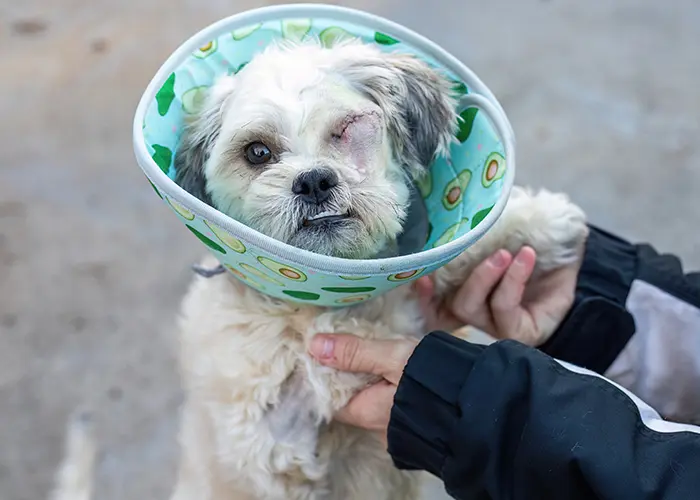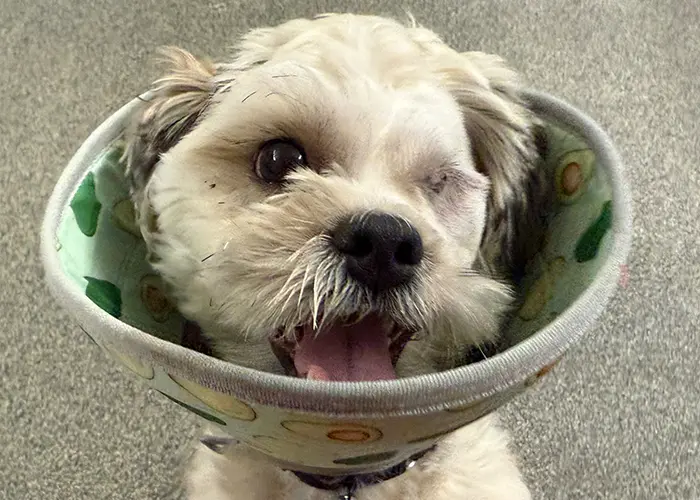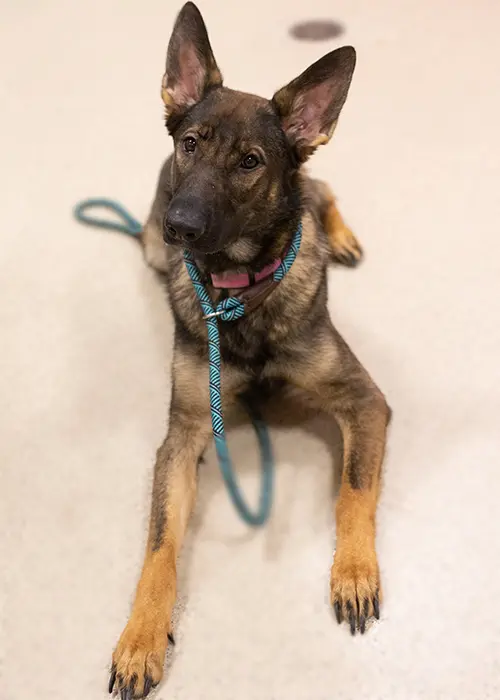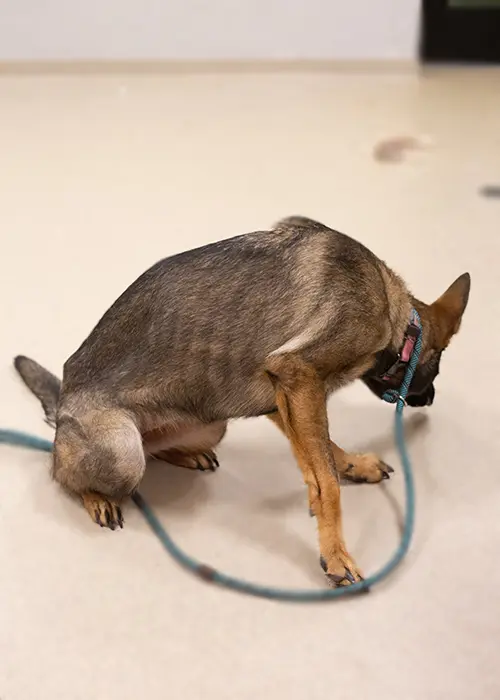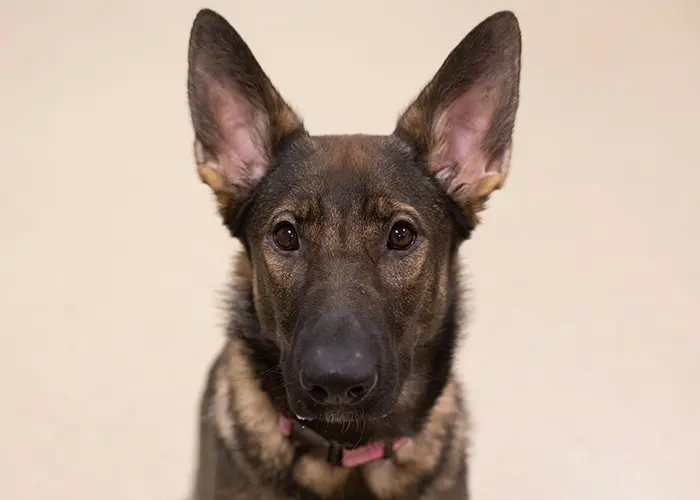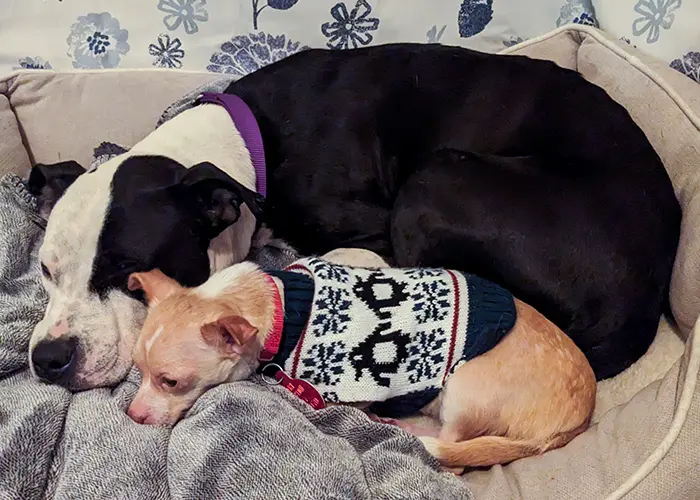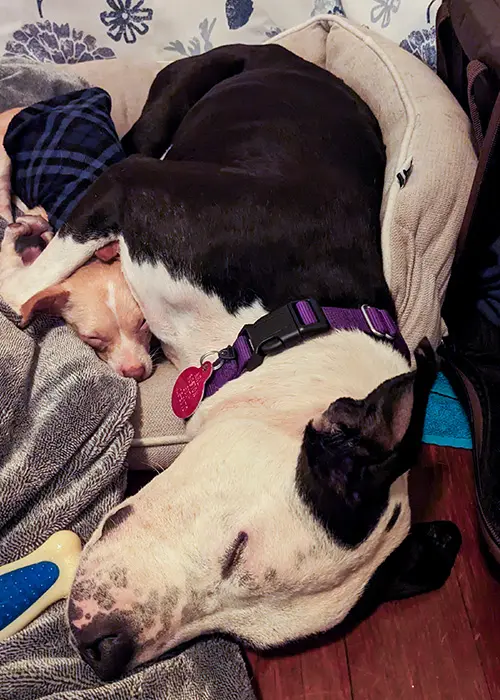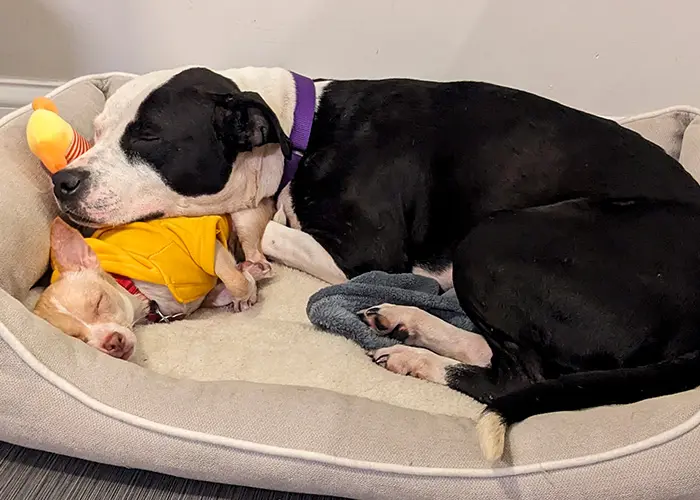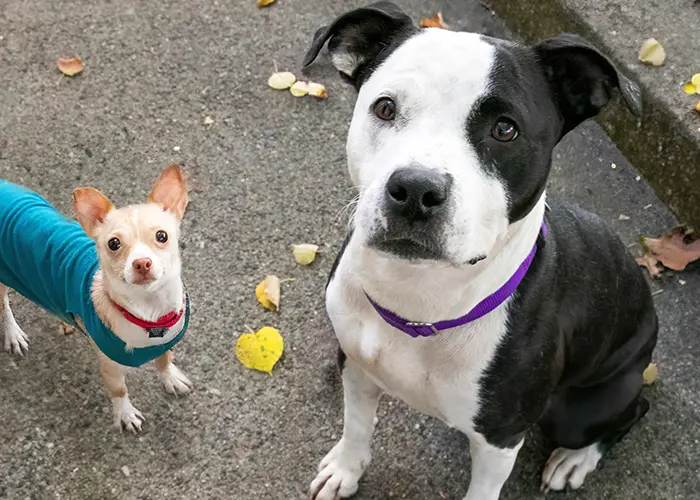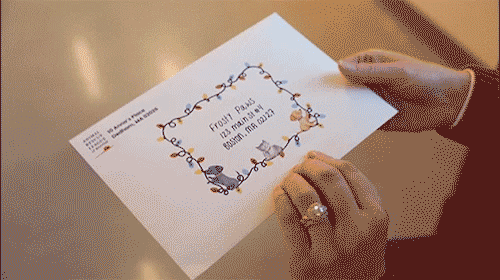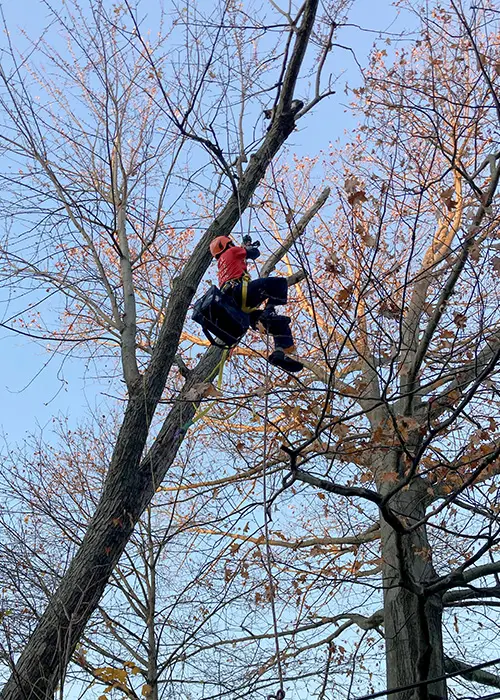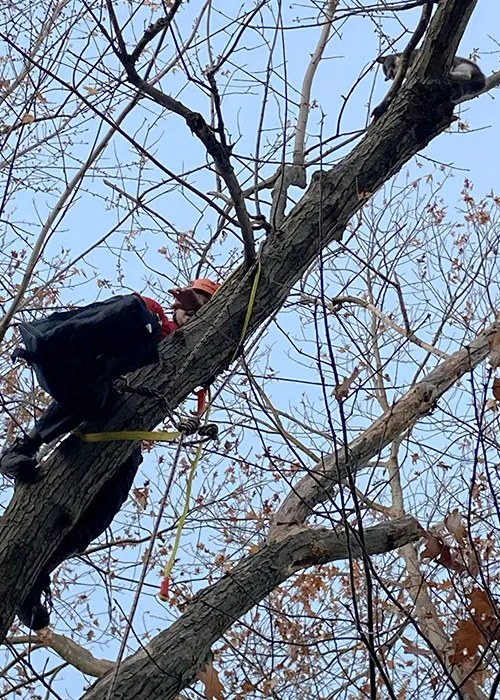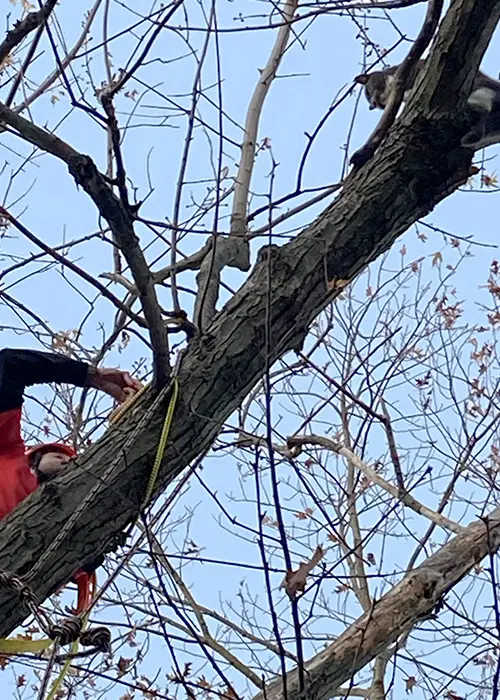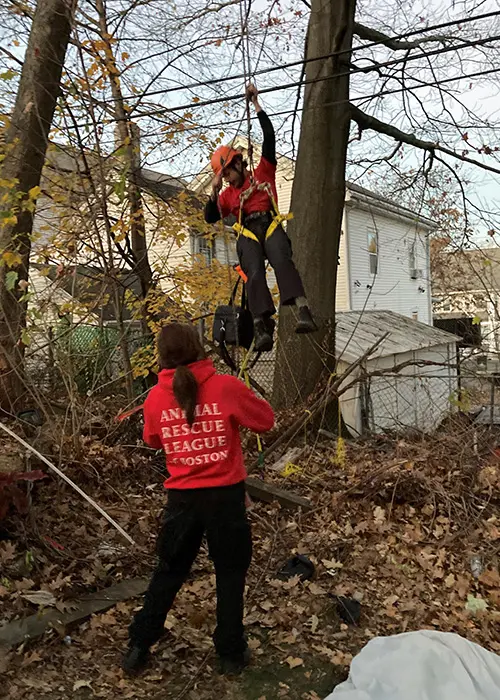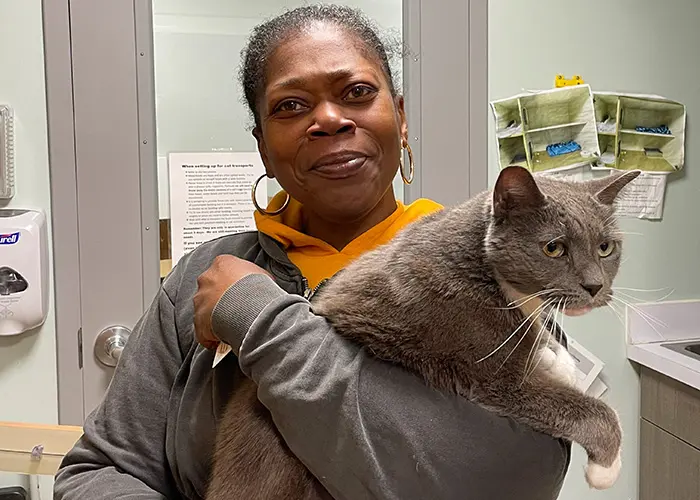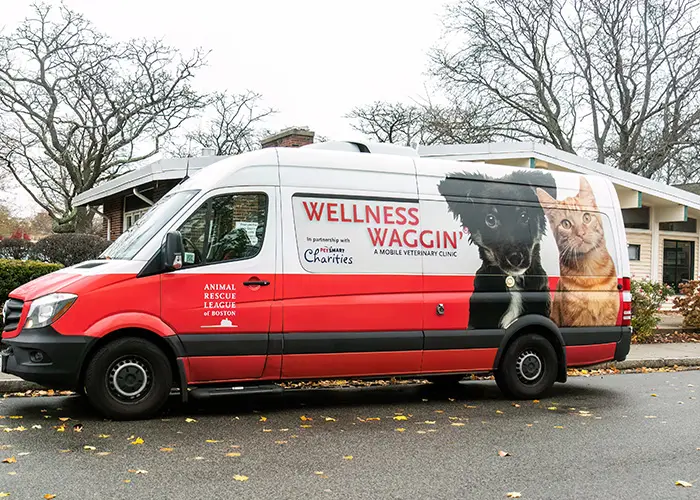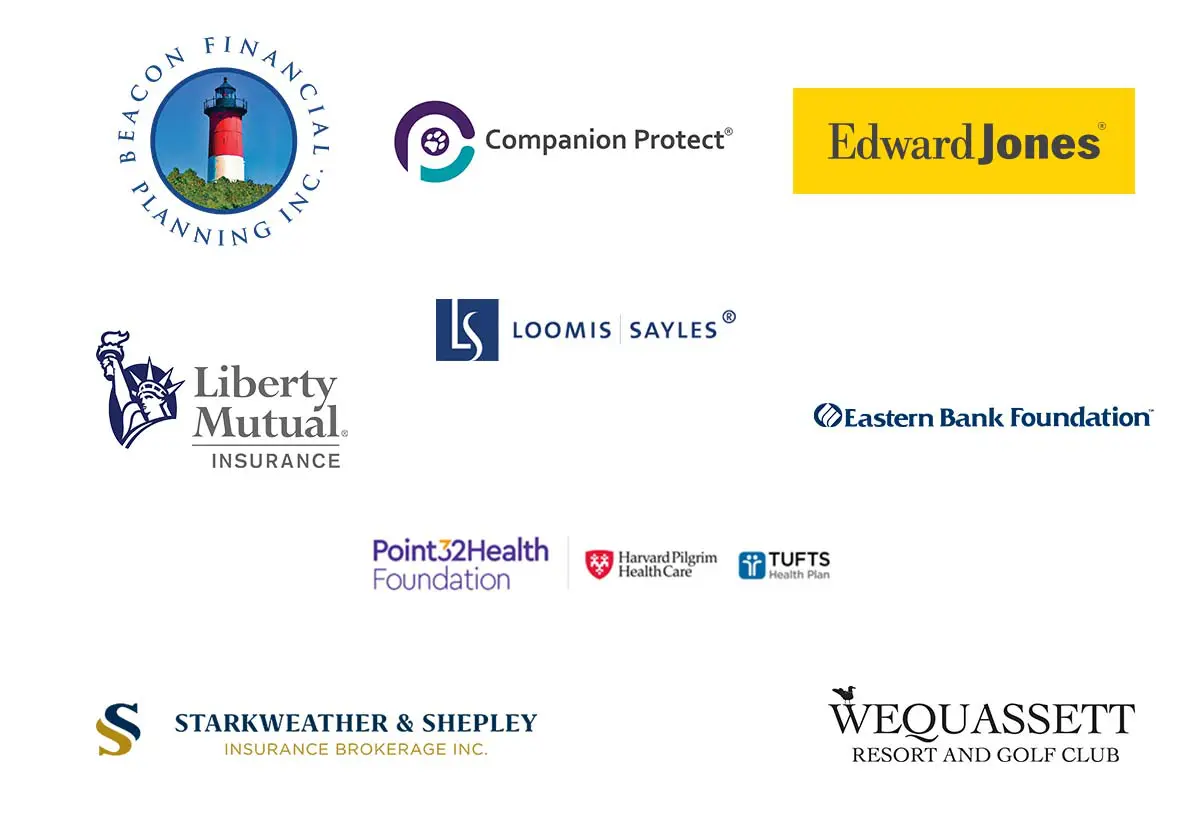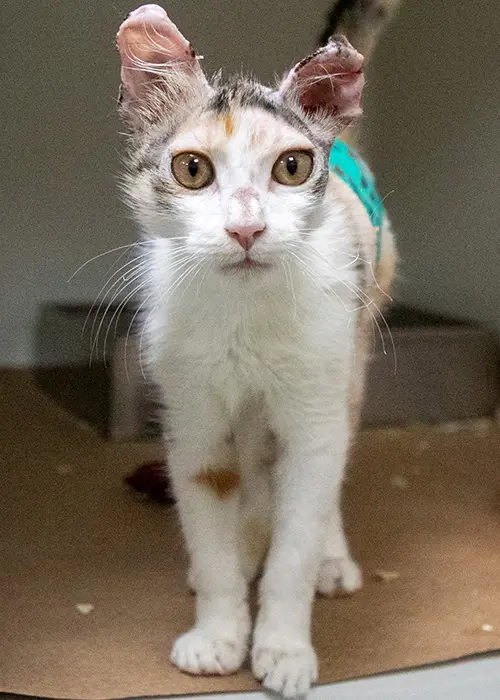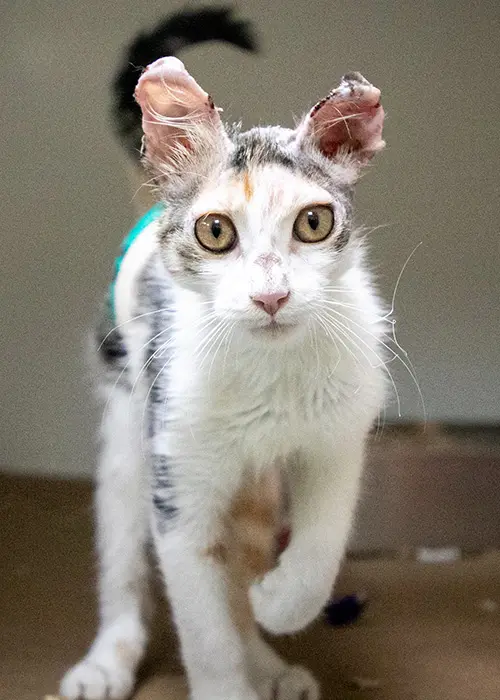ARL Caring for Injured Dog Who Needed Emergency Eye Surgery
Injured dog with bulging eye brought to ARL after being found outside vet clinic in Boston
The Animal Rescue League of Boston (ARL) is caring for a one-year-old inured dog taken in from Boston Animal Care and Control after being found tied to a pole outside a local veterinary clinic and needing emergency surgery to remove an eye that dislodged from its socket.
Aside from the injury, the dog was very well cared for and ARL believes this is yet another example of a pet owner in crisis not knowing where to turn.
The dog, named Herbie, was found on December 11 outside of a veterinary clinic in Boston and brought to Boston Animal Care and Control.
Because he needed immediate medical attention, he was transported to ARL’s Boston Animal Care and Adoption Center where he was assessed.
His left eye was proptosed, meaning it dislodged from its socket, and needed to be removed surgically due to the severe damage.
This is not an uncommon injury for a small dog, and typically occurs as the result of trauma i.e. accident.
Other than the injury to the eye, Herbie is in excellent health, is very friendly, and well-groomed.
Herbie is healthy and will live a normal life.
ARL understands many pet owners are struggling and reminds the public that ARL is a resource.
In 2024 ARL has seen more than 700 animals surrendered due to housing-related issues, which is more than double from 2023.
Cost of pet care has risen drastically in recent years, and when a medical emergency arises, many pet owners are unable to pay for care, prompting some to make rash decisions, but with the best interest of the animal in mind.
Any pet owner facing difficulties can access our list of resources and programs including:
- Accessible wellness care
- Low-cost spay/neuter surgeries
- Pet food and supplies
- Temporary pet housing
- Free pet behavior help
URGENT REQUEST: Animals still need you!
Time is running out and your year-end gift is needed now!
Rising costs have strained our limited resources – animals and the people who love them need you now.
Your donation can ensure animals in need have everything they need, including behavioral support, veterinary care, shelter, and adoption services, to help them find safe and loving homes to experience love and joy in the New Year.



